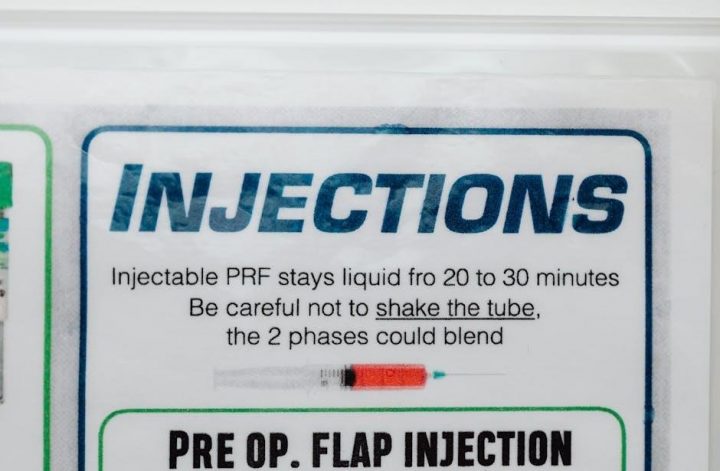Overview of Dental Implant Surgery
Dental implant surgery involves placing artificial tooth roots to support prosthetic teeth. It restores chewing function and aesthetics, with post-op care essential for optimal healing and success.
1.1 What to Expect Immediately After Surgery
Immediately after dental implant surgery, patients may experience numbness, mild bleeding, or swelling at the surgical site. Discomfort is common but manageable with prescribed pain relievers. You may notice bruising or discoloration, which typically subsides within a few days. Avoid spitting or rinsing vigorously to prevent dislodging the blood clot. Rest is recommended, and patients should avoid strenuous activities. The implant site may feel tender, but this is temporary and part of the healing process.
1.2 Importance of Following Post-Op Instructions
Following post-operative instructions is crucial for a smooth recovery after dental implant surgery. Proper care minimizes complications, such as infection or implant failure, and ensures optimal healing. Adhering to guidelines helps prevent swelling, bleeding, and discomfort, while promoting proper osseointegration of the implant. Ignoring instructions can lead to prolonged recovery or implant rejection. Patients should strictly follow advice on rest, diet, and oral hygiene to achieve the best outcomes and maintain their new implant’s longevity and functionality.
Immediate Post-Operative Care
Immediate post-operative care involves controlling bleeding with gauze, managing swelling with ice, and resting to avoid dislodging the blood clot. Keeping the area clean is essential.
2.1 Bleeding and Swelling Management
Bleeding and swelling are common after dental implant surgery. Control bleeding by gently biting on gauze for 30 minutes. If bleeding persists, contact your dentist.
Apply an ice pack to the swollen area to reduce inflammation. Rest and elevate your head to minimize swelling. Avoid strenuous activities and hot beverages.
Monitor for excessive bleeding or swelling, as these may indicate complications. Follow your dentist’s instructions to ensure proper healing and avoid dislodging the blood clot.
2.2 Pain Management Strategies
Manage post-surgery pain with prescribed medication, taken as directed by your dentist. Over-the-counter pain relievers like ibuprofen may also be recommended.
Start with a lower dose to assess effectiveness and avoid side effects. Apply an ice pack to the swollen area to reduce discomfort.
Rest and avoid strenuous activities to promote healing. Stay hydrated and follow your dentist’s instructions to minimize pain and prevent complications.
While some discomfort is normal, severe pain should be reported to your dentist promptly to ensure proper recovery.

Recovery Timeline
Dental implant recovery progresses through healing stages, with initial tissue recovery in weeks and full osseointegration completing in 3-6 months, ensuring stability for final restoration.
3.1 First 24-48 Hours
The initial 24-48 hours post-surgery are critical for healing. Patients should expect mild bleeding and swelling, which can be managed with ice packs. Rest is essential, and a soft food diet is recommended to avoid discomfort. Pain management typically involves prescribed medication, and patients should avoid rinsing or spitting vigorously. Following the dentist’s instructions closely during this period helps prevent complications and promotes a smooth recovery process.
3.2 First Week Post-Surgery
During the first week after dental implant surgery, patients typically experience gradual improvement in discomfort and swelling. A soft food diet is still recommended, avoiding hard or crunchy foods. Mild bruising and soreness may persist, but pain management remains effective with prescribed medications. Gentle oral hygiene practices should begin, focusing on areas around the implant. Attend follow-up appointments as scheduled and avoid strenuous activities. Monitor for signs of complications, such as increased pain or swelling, and adhere to the dentist’s instructions for optimal healing.
3.3 Long-Term Recovery (1-6 Months)
During the long-term recovery phase, the dental implant integrates with the jawbone, a process called osseointegration. Most patients resume normal activities and diets within a few months. Gentle chewing is recommended initially, gradually introducing harder foods. Proper oral hygiene is crucial to prevent infection and ensure the implant’s longevity. Follow-up appointments are essential to monitor healing progress and adjust the prosthetic teeth for optimal fit and function. Avoid smoking or grinding habits, as they can compromise the implant’s success. Full healing typically completes by 6 months.

Dietary Recommendations
Post-implant surgery, a soft food diet is recommended to minimize discomfort and protect the implant site. Avoid hard, crunchy, or sticky foods that could dislodge the implant.
4.1 Soft Food Diet
A soft food diet is crucial after dental implant surgery to promote healing and avoid discomfort. Opt for foods like mashed potatoes, scrambled eggs, yogurt, and soft-cooked vegetables. Avoid chewing directly over the implant site to prevent irritation. Soups and broths are excellent choices, as they are easy to consume and provide essential nutrients. Ensuring a balanced diet supports the recovery process and helps maintain overall oral health during the healing phase.
4.2 Foods to Avoid
After dental implant surgery, it’s essential to avoid certain foods to ensure proper healing. Hard, crunchy, or chewy foods like nuts, raw vegetables, and hard candies can dislodge the implant. Sticky foods such as caramels or toffees may damage the implant or surrounding tissue. Spicy or acidic foods can irritate the surgical site, slowing recovery. Hot beverages should be consumed cautiously to avoid discomfort. Avoid these foods for at least 2-3 weeks post-surgery to promote a smooth and successful healing process.

Oral Hygiene Practices
Gentle brushing around implants with a soft toothbrush is crucial. Use non-abrasive toothpaste and avoid harsh mouthwashes. Maintain proper hygiene to ensure implant stability and gum health.
5.1 Cleaning the Implant Site
After surgery, gently clean the implant site with a soft-bristled toothbrush and non-abrasive toothpaste. Avoid using harsh mouthwashes or scrubbing too hard, as this may irritate the gums. Rinsing with warm salt water several times a day can help reduce swelling and promote healing. Proper oral hygiene prevents infection and supports implant integration. Your dentist may recommend specific cleaning tools or solutions to ensure the site remains clean and free from bacteria. Consistency is key for a smooth recovery.
5.2 Maintaining Good Oral Habits
Maintaining good oral hygiene is crucial for implant success. Brush your teeth twice daily with a soft-bristled toothbrush and fluoride toothpaste, paying special attention to the implant area. Avoid smoking or using tobacco products, as they can hinder healing and increase infection risk. Limit consumption of alcohol and sugary foods to prevent plaque buildup. Regular flossing and interdental brushing can help remove plaque between teeth and around the implant. Consistent oral care habits ensure the longevity and health of your dental implants.
Activity Restrictions

Rest is essential after dental implant surgery. Avoid strenuous activities for 24-48 hours to minimize swelling and promote healing. Gentle movements are acceptable if not painful.
6.1 Rest and Avoiding Strenuous Activities
Rest is crucial after dental implant surgery. Avoid strenuous activities, heavy lifting, or bending for 24-48 hours. Elevated head positions reduce swelling. Limit physical exertion to prevent complications.
6.2 Resuming Normal Activities
Most patients can resume normal activities within a few days post-surgery. Avoid heavy lifting or strenuous exercise for one week. Light exercises and work can usually restart after 3-4 days. Monitor healing progress and follow your dentist’s advice for safe recovery. Avoid activities that may dislodge the implant or cause trauma to the surgical site. Gradual resumption ensures proper healing and long-term success of the implant.
Follow-Up Care
Regular follow-up appointments are crucial for monitoring healing progress, removing sutures, and ensuring proper implant integration. Attend all scheduled visits to maintain optimal recovery and outcomes.
7.1 Importance of Follow-Up Appointments
Follow-up appointments are essential to ensure proper healing and implant integration; They allow your dentist to monitor progress, address concerns, and make necessary adjustments. Regular check-ups help prevent complications and ensure the implant functions and looks as intended. Missing appointments can lead to issues like improper healing or implant failure. By attending follow-ups, you play an active role in achieving long-term success and maintaining your oral health.
7.2 Monitoring Healing Progress
Monitoring healing progress ensures your implant integrates correctly with the jawbone. Regular exams allow your dentist to assess bone fusion and tissue health. X-rays and physical checks are common methods. Proper healing signs include reduced swelling, pain subsidence, and stable implant placement. Early detection of issues like loosening or infection is crucial. Neglecting these checks can lead to complications, emphasizing the need for consistent follow-ups to ensure a smooth and successful recovery process.
Potential Complications
Possible complications include infection, nerve damage, or implant failure. Early detection is key to addressing these issues promptly and ensuring successful recovery.
8.1 Signs of Infection
Signs of infection after dental implant surgery may include persistent redness, swelling, or warmth around the implant site. Pus or a bad taste in the mouth can also indicate infection. Additionally, increased pain or tenderness that does not subside with prescribed medication may be a sign of infection. If these symptoms occur, it is crucial to contact your dentist immediately for evaluation and treatment to prevent complications.
8.2 Managing Complications
Managing complications after dental implant surgery involves addressing issues promptly to ensure healing and implant success. If infection occurs, antibiotics may be prescribed. For implant failure, a second procedure might be necessary. Proper wound care, including gentle rinsing and maintaining hygiene, is essential. Patients should adhere to post-operative instructions, avoid smoking, and attend follow-up appointments. Early intervention can prevent minor issues from becoming serious, ensuring the best outcome for dental implant integration and long-term functionality.

Emotional and Psychological Recovery
Emotional recovery after dental implant surgery involves coping with anxiety and adapting to changes. A strong support system and professional guidance can ease the process significantly.
9.1 Coping with Anxiety
Coping with anxiety after dental implant surgery involves acknowledging fears and adopting calming strategies. Techniques like deep breathing, meditation, and distraction can help manage stress. Open communication with your dentist about concerns and expectations can reduce anxiety. Additionally, maintaining a routine and seeking support from family or friends can provide emotional stability. Professional counseling is also an option for severe anxiety. Addressing these feelings early ensures a smoother recovery and better overall well-being.
9.2 Support Systems
Having a strong support system is crucial during recovery from dental implant surgery. Family and friends can provide emotional reassurance and assist with daily tasks, reducing stress. Joining support groups connects you with others who have undergone similar experiences, offering invaluable advice and emotional support. Professional guidance from psychologists or counselors can also help manage anxiety or concerns. A robust support network ensures a more comfortable and confident recovery process, addressing both physical and emotional needs effectively.




